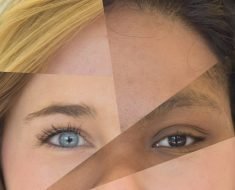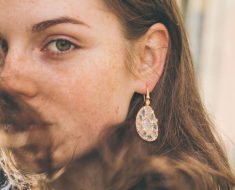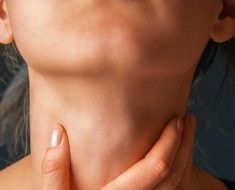Why is it so difficult? This doing nothing, this mind, this Soul, from which in the holiday season, all of them are so obsessed with? A few years ago revealed a study by the health insurance company DAK-Gesundheit, that in Germany one out of every Ten in the summer holidays sick . Recovery seems to catch a such difficult, that many Germans phenomenal fail!
Although regular breaks are enormously important for health, not many people know how to actually Relax. In all the years of learning, working and together, tearing you seem to have the high art of leisure to be forgotten.
The good news is that The psychology of the white Council. There are specialists that deal specifically with the question of how the human spirit can come to rest. Their main findings we have summarized here:
1. Put away your cell phone. You Meet Your Friends. They will embrace you.
Envy is full of marvel at vacation photos of Facebook friends-who would have thought it – not relaxing. The Facebook research is still quite young, and studies on the health effect of social media often lack explanatory power, but are psychologists largely agree: It is the real, physical encounter with our friends, the of the Psyche of new power gives us the stress relief helps – not the click of the Like Button under your Facebook Posts.
Evidence provided to a recent study in the journal Frontiers in Psychology. Canadian researchers had asked 5000 people, how many Facebook friends you have, how big your actual friends circle, and how to trust fully and closely their relationship to their friends. In addition, they wanted to know from you, how it was ordered from to your health and how you feel: stressed, and nervous? Or even safe and comfortable?
The analysis showed that people who have many real friends, and overall, better. No such a context, the researchers found, however, between well-being and the length of the Facebook friends list. Now a cause cannot from these results-and-effect relationship. It could be that people are happier and healthier, easier to make friends and therefore a larger (real) circle of friends.
But the mental healing power of close social bonds has been revealed in previous studies. And "eng" it is quite literally to understand: The physical proximity of a beloved Person leads to the release of the so-called cuddle hormone Oxytocin, which is the blood pressure, as well as the concentration of the stress hormone Cortisol in the blood to reduce , and even alleviate pain.
As the contact increases to a loved one’s well-being and reduces Stress and fortifies us against future hardships. In a study by the psychologist Markus Heinrichs of the University of Freiburg had around 40 men presentations in front of an audience. On top of that, you should solve and then spontaneously, a computing task. Pure Stress for the majority of, however, not for all equally: Approximately 20 subjects had a short time before the Experiment time with a good friend spend. They reported less fear and nervousness as the subjects, the time before the Test alone spent had. In addition, measurement of Henry in their saliva, a lower Cortisol concentration.
2. You Are Doing Sports.
Yes, Sport is exhausting. However, for the Psyche of regular physical activity is relaxing and healthy. Numerous studies have shown that exercise can also boost your mood and veritable noise can trigger conditions. Why, is not yet clearly understood. For a long time it was the euphoric effect on the so-called endorphins, which are released during movement is increased. Today, researchers believe that these messengers are not mood-enhancing, but rather a pain-relieving effect.
Behind the intoxicating effect, so not endorphins, but there may be other messengers. In the visor scientists about the so-called Endocannabinoids. You can activate (similar to the active ingredients of the hemp plant), the cannabinoid receptors in the brain, and the sport driving this really high – if that is not an Argument for an extended bike ride. Through the forest:
3. You forget New York and Barcelona. In the nature!
Granted, there are good arguments for a city trip in a exciting metropolis: It will not be bored. It is more or less forced to move a lot (see point 2). Moreover, the unfamiliar environment, entrenched ways of thinking helps to come up with and fresh thoughts.
On the other hand, is something to be said for spending the holiday as much time as possible in nature. So was the Swedish psychologist Terry Hartig in an Experiment, that a walk through the nature relaxing the mind and body acts as a city walk. He had asked 50 students to run for an hour through the Santa Ana mountains in California.
About as many should explore in the meantime, the centre of the city of Orange. Before – and-after measure Hartig blood pressure from his subjects and inquired about their well-being. In fact, it was the feedback in the two groups differently: Those of the scientists to the Green had been sent, had lower blood pressure than before, and they felt less aggression. However, the other, who had walked through the city, and more irritable than before, and also had a higher blood pressure felt.
In Japan, some people are so convinced of the healing and stress-reducing effect of nature that you regularly "Shinrin-yoku" operate, as much as "Waldbaden" means. Japanese researchers have even found evidence that a walk in the woods stimulates the self-healing forces of the body. In the laboratory, found that certain substances, the plants for defense against pests, the killer cells of the immune system to activate.
4. They prefer to make many short trips as an annual holiday
If you want to travel to far away countries like Australia or India, it is not enough for a long weekend, of course. From recovery the psychological point of view, however, it is also wise not all holiday rates days for a big annual vacation to a verb: studies of work and Organization psychologist Jessica de Bloom suggest, that the peak of the recovery is already achieved after a week of leisure.
The researcher had around 60 people interviewed during and after their average three-week trip to your. It occurred to her that the mood of the holidaymakers improved, especially in the first week. The second and third week brought hardly any improvement. It is also true that long holidays have a more sustainable effect than short ones. The recovery on holds in both cases for about a week.
5. So you avoid the Post-Holiday Syndrome
Yesterday’s Cocktail-sipping summer-collected sprouts, today for eight hours in a dreary office on the Monitor stared: The first working day after the holiday may be concerned to be customary, almost depressing. This mood is so common that there are already names in various languages. In English-speaking countries, speaks of the "Post-Holiday Syndrome" or "Post-Vacation Blues", and in Germany, too, is sometimes from the "Holiday Return Blues" or even of the "Post-Urlaubsdepression" the speech.
What helps? Now, depending on the intensity of the dejection of a job change can help or even point 4: the next vacation plan. But there are also some measures that the mood is low after the holidays to prevent :
- Try on vacation not too strong of your usual sleep times to depart. If the internal clock is in sync, but that doesn’t dampen only the mood, but also health and mental performance damage.
- Take your time to arrive. Especially when a jet lag is to fight, it makes sense, initially, for a few days at home to settle in, before getting back with the Work begins.
- Shorten your first week of work. Set so, if possible not on a Monday los, but rather on a Wednesday or Thursday. So the risk is low, the Motivation drops in the first week back to the zero point.
Thus, chronic Stress and fatigue did not manifest itself in the first place, it is advisable to treat yourself in everyday life, more frequent breaks and to make the evening as relaxing. There is nothing wrong with an occasional lazy Netflix night on the Couch. But the Psyche, it is in the long term, more benefit, if you the majority of the evenings with friends, movement or/and in the Green to spend.
Sources:
DAK-holiday report 2013. A representative Forsa-survey on behalf of the insurance company. Online publication: www.dak.de (retrieval date: 3.5.2019)
Lima, M. L., et al.: All You Need Is Facebook “Friends”? Associations between Online and Face-to-Face Friendships and Health. Frontiers in Psychology Jg. 8, no. 68. PMC. Web (July 2017)
Foot, J., et al.: A runner’s high depends on cannabinoid receptors in mice. Proceedings of the National Academy of Sciences, Jg. 112, No. 42, P. 13105-13108 (October 2015)
de Bloom, J., et al.: Vacation (after-) effects on employee health and well-being, and the role of vacation activities, experiences and sleep. Journal of Happiness Studies, Jg. 14, No. 2, Pp. 613-633 (April 2013)
de Bloom, J., et al.: Effects of short vacations, vacation activities and experiences on employee health and well-being. Stress&Health Jg. 28, No. 4, P. 305-318 (October 2012)
Q, L., et al.: Acute effects of walking in forest environments on cardiovascular and metabolic parameters. European Journal of Applied Physiology Jg.111, No. 11, P. 2845-53 (November 2011)
Salva, Q., et al.: Circadian rhythms, melatonin and depression. Current Pharmaceutical Design Vol. 17, No. 15, P. 1459-70 (April 2011)
Updated on: 6. May 2019





